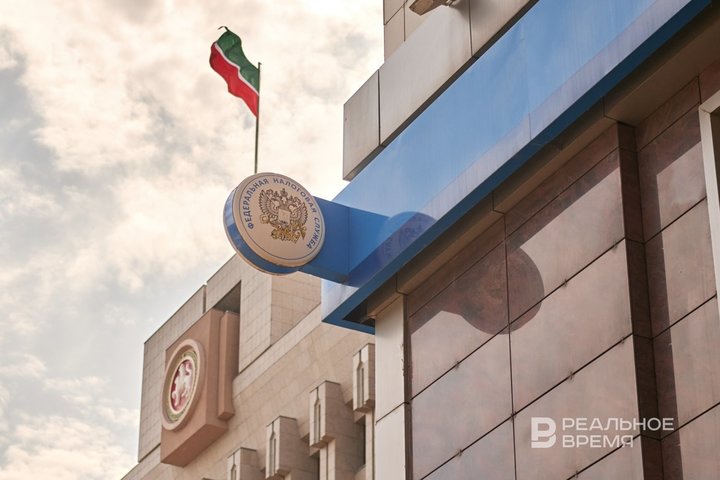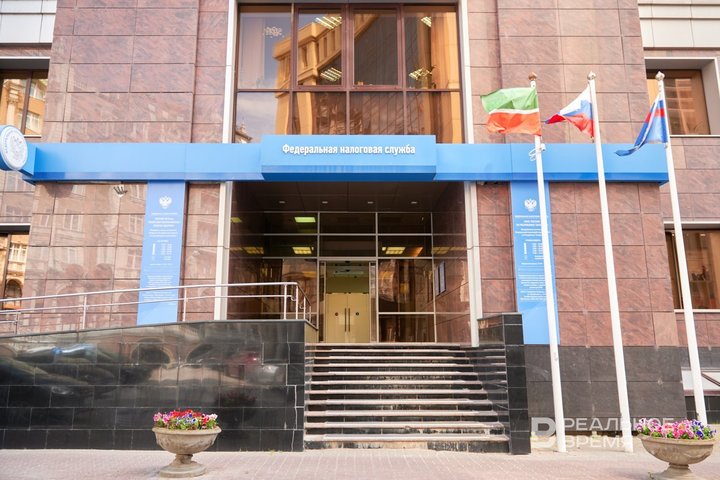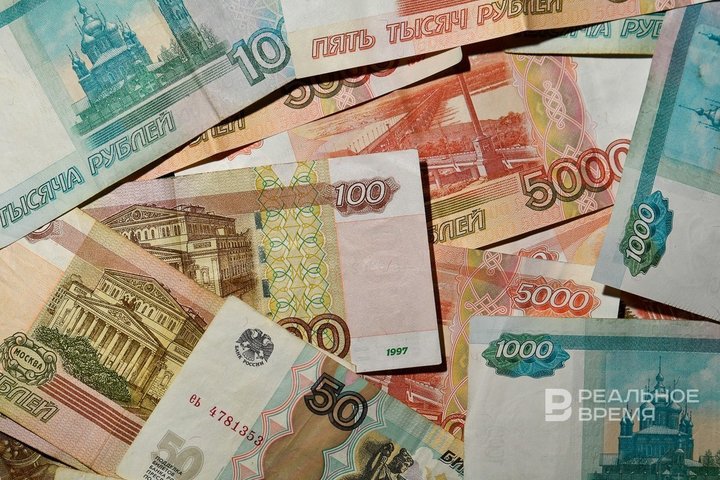‘They trust up to 1.4 million rubles’: Tatarstan residents save insured amounts in banks
Tatarstan citizens will pay personal income tax for the first time from income from bank deposits received in 2023

For the first time this year, Tatarstan citizens will have to pay personal income tax on income from bank deposits received in 2023. The Office of the Federal Tax Service for Tatarstan begins sending notifications — a total of 2.9 billion rubles are payable, tax experts estimated. Interestingly, only 33,000 Tatarstan citizens, or about 4-5% of the total number of depositors, fell under the “bank” 13% tax. “The low savings activity of residents of the republic is associated with a psychological barrier — they do not trust more than the insured limit of 1.4 million rubles, and it was difficult to get a large income on short-term deposits last year," analysts explain. Read the details in the material of Realnoe Vremya.
4-5% of bank depositors received good luck letters
This week, the Tatarstan Department of the Federal Tax Service will continue to send notifications on personal income tax accrual on income received from bank deposits last year.
“For the first time this year, more than 33,000 residents of Tatarstan will pay personal income tax (personal income tax) on income from interest on bank deposits for 2023," the press service of the Federal Tax Service for Tatarstan told Realnoe Vremya.
According to the calculations of the tax authorities, their interest income on deposits turned out to be higher than the non-taxable amount of 150,000 rubles. This means that the total amount of deposits exceeded 1 million rubles. As a result, they will have to pay a bank tax in the amount of 2.9 billion rubles for 2023.

It was not possible to find out how many depositors keep money in Tatarstan banks.
“There is no such information," the press service of the branch of the National Bank of the Republic of Tatarstan of the Volga-Vyatka State Bank noted with regret. According to approximate estimates of experts, we can talk about 800-900 thousand people. In other words, about 4-5% of depositors who had deposits in excess of 1 million rubles in their accounts fell under the bank tax.
Deposit base in banks has grown to 900 billion rubles
The tax notice will indicate the amount of interest on each deposit, the name of the credit institutions where the deposits were, and the amount of tax accrued. The calculation is based on the data provided by the banks themselves and the Deposit Insurance Agency of Russia.
“Personal income tax from interest on deposits in banks is calculated by the tax service on the basis of information provided by banks and the state corporation Deposit Insurance Agency," the press service of the Federal Tax Service noted.
The tax notification should be reflected in the Taxpayer's Personal Account for Individuals in the Income section, the press service clarified. If the taxpayer has not registered on the Federal Taxation Service platform, the notification will be received in paper form by mail. The deadline for payment is December 1, 2024.

By the end of 2023, Tatarstan residents had more than 863 billion rubles on deposits, the press service of the branch of the National Bank for the Republic of Tatarstan of the Volga-Vyatka State Bank reported earlier. By this time, the term deposit rate had soared to 14.5% per annum instead of 9% per annum at the beginning of the year. The cycle of gradual increase of the key rate began in the spring of last year, and the most noticeable jumps occurred in August and October, when the Central Bank raised the key rate twice. As a result, the growth of the key rate exceeded expectations, which were predicted in the range of 11.5%-12.5%, increasing by two percentage points higher. This led to that Tatarstan residents increased their deposits by 10% — up to almost 900 billion rubles, analysts noted.
Those whose interest income turned out to be above 150 thousand rubles pay
Why did the amount of accrued “bank” tax turn out to be tiny compared to a trillion on deposits? 2.9 billion rubles of tax from a deposit base of almost 900 billion rubles, placed at 14.5% per annum, surprised Pavel Saimiev, CEO of Businessdrom analytical centre.
“I can't comment," he admitted in a conversation with Realnoe Vremya. “Maybe they made a mistake with the accrual," he suggested.
There was no mistake. As explained in the Federal Tax Service of the Republic of Tatarstan, not the entire amount of the interest contribution falls under taxation, but only the difference between the total income and the non-taxable amount of 150,000 rubles.
“This value is calculated as the product of 1 million rubles and the maximum value of the key rate of the Bank of Russia from those in effect as of the first day of each month in the calendar year. For example, in 2023, the maximum rate was on December 1 and amounted to 15%. Accordingly, the limit of non-taxable income amounted to 150,000 rubles, the Federal Tax Service of the Republic of Tatarstan noted.
Are Tatarstan residents not inclined to save?
Depositors will have to pay personal income tax only if the amount of interest on deposits for the year exceeds the limit.
“If the amount of interest on deposits exceeds this limit, the tax is calculated from the difference between the amount of interest and the limit. At the same time, the personal income tax rate depends on the total income for 2023 and amounts to 13% to 5 million rubles and 15% above this amount, the Federal Tax Service of the Republic of Tatarstan said.
Interest income on escrow accounts and ruble accounts, the interest rate on which does not exceed 1% per annum throughout the year, did not fall under taxation. 2.9 billion rubles is a small increase to the total personal income tax fees, which brings about 60 billion rubles to the treasury annually.

Why did only 4-5% of depositors fall under the personal income tax? Maybe Tatarstan people are not inclined to save? Financial analysts explain the phenomenon by the fact that savings activity is restrained by the maximum insurance amount of 1.4 million rubles.
“Tatarstan residents invest everything from above in real estate or keep it under their pillow," they suggest.
“Last year it was more profitable to buy a house than to keep money on deposit," says Andrey Saveliev, the head of NLB-Nedvizhimost. “Then a studio apartment in a new building cost 6.2 million rubles, and now it costs 8 million rubles.”
He agrees that the low savings activity of residents of the republic is associated with a psychological barrier — they do not trust more than the insured limit of 1.4 million rubles:
“Or they put two deposits of 1.4 million rubles each, but for a short-term period — from 3 to 6 months. It was difficult to get a large income on term deposits last year.
We should add that in the rating of regions by the amount of deposits prepared by RIA Novosti, Tatarstan took the 25th place last year. The average deposit amount per resident was only 260 thousand rubles.